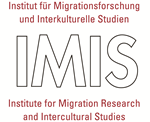Since the late Summer of 2015 Germany has experienced what is now already one of the largest immigration waves in its history, which moreover is occurring suddenly and within an unprecedentedly short span of time. Dynamics of public opinion on the topic have likewise been volatile, from initial hostile outbursts of anti-refugee collective action, to a massive wave of solidarity and support for refugees, and what seems to be a strong bifurcation of opinions later on. This project aims to investigate these dynamics while they are happening by fielding a survey on attitudes towards and social contacts with refugees, as well as on participation in pro-refugee or anti-refugee collective action. To get a handle on the mechanisms that drive opinions towards refugees, the survey includes several experiments. In a vignette experiment we measure how support for the granting of refugee status to an applicant depends on his or her profile, randomly varying reasons for seeking refuge in Germany (political persecution or economic hardship), religion (Muslim or Christian), level of education, and gender. By way of an authority support experiment we will be able to investigate to what extent support for pro- and anti-refugee statements depends on their endorsement by politicians of different political affiliations. Finally, an inclusive identity and victimhood experiment measures whether feelings towards refugees vary depending on whether they are framed in a context that refers to Germany’s earlier historical experiences with mass immigration. The data allow to link respondents' attitudes to context variables, e.g. the ethnic composition of their community.
The survey went into field in early November 2015. A second wave was done in summer 2016.
Results of the first wave showed an overall positive attitude towards granting asylum to refugees. With respect to the refugee profiles that were tested in the vignette experiment, the reason for seeking refuge (political persecution vs. economic hardship) was most decisive. The results are summarized in the WZB Mitteilungen No. 151, pp. 24-27.







